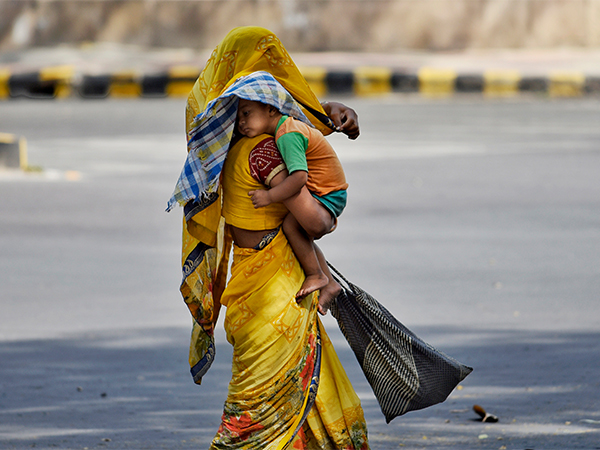US, S. Korea agree to cooperate on Taiwan Strait issue amid rising tensions
May 22, 2021

Washington [US], May 22 : The United States and South Korea have agreed to cooperate on the Taiwan Strait issue, amid rising tensions in the 180-km wide waterways.
US President Joe Biden and South Korean President Moon Jae-in, who is on a visit to America, held a bilateral summit on Friday, Taiwan News reported.
At the post-summit press conference, Biden said the two talked about issues vital to regional stability, such as maintaining freedom of navigation in the South China Sea and upholding peace and stability in the Taiwan Strait, according to a joint statement.
Regarding Taiwan, Moon said, "We've shared the view that peace and stability in the Taiwan Strait are extremely important, and we agreed to work together on that matter while considering special characteristics in relations between China and Taiwan," Reuters cited him as saying.
This focus on the strait comes after China has ramped up political pressure and military threats against Taiwan, with almost daily incursions into Taipei's air defence identification zone.
Recently, US Navy destroyer USS Curtis Wilbur (DDG 54) transited the Taiwan Strait to demonstrate America's commitment to a free and open Indo-Pacific.
This drew a sharp reaction from Beijing, who accused the US of threatening the peace and stability of the Taiwan Strait.
The Taiwan Strait is a 180-kilometre-wide strait separating the island of Taiwan and continental Asia. The Taiwan Strait is one of the most heavily policed strips of water in the world, patrolled by both Chinese and Taiwanese navy and coastguard vessels.
The strait is in international waters, however, China claims Taiwan as its own territory and regards the US Navy's presence in the area as a show of support for the island's democratic government.
On Wednesday, a Beijing-backed think-tank -- China Cross-Strait Academy -- released a report on relations across the Taiwan Strait that separates mainland China from Taiwan, South China Morning Post reported.
The think tank said the risk of armed conflict is an "all-time high" as tension escalates in the region.




















